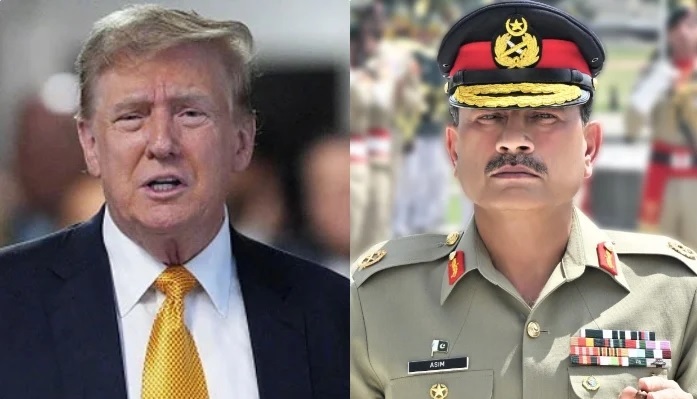U.S. President Donald Trump on Wednesday once again lauded Pakistan’s Field Marshal Asim Munir, whom he recently hosted at the White House, and reaffirmed his claim of defusing last month’s escalating tensions between nuclear-armed rivals Pakistan and India.
President Trump calls Pakistani Field Marshal General Asim Munir “very impressive” https://t.co/gDKFFGC5OE pic.twitter.com/s3Y8CTUceV
— FJ (@Natsecjeff) June 25, 2025
Speaking at a press conference after the annual NATO summit in The Hague, Trump described the Pakistan-India standoff as the most critical recent conflict due to both nations possessing nuclear weapons. He stated that a series of trade-related phone calls helped ease the crisis.
Read more: US strikes failed to destroy Iran’s nuclear sites, intelligence report says
“I told them, ‘If you go to war with each other, we won’t proceed with trade deals.’ It was getting really serious,” Trump said.
He expressed admiration for Field Marshal Munir, calling him “a very impressive personality, a great man,” following their meeting at the White House. Trump also referred to Indian Prime Minister Narendra Modi as “a great friend” and “a great gentleman.”
“We got them to think logically,” he added. “I said, ‘No trade deals if you’re going to fight.’ And you know what? They said they wanted the trade deal—and we averted a nuclear war.”
Trump previously claimed that both nations agreed to a ceasefire after U.S.-mediated talks and that his intervention redirected the focus from military escalation to economic cooperation.
Read more: Trump drops ‘F-bomb’ over Israel and Iran
Pakistan has publicly acknowledged Trump’s efforts, crediting him for helping broker the ceasefire and repeatedly praising his diplomatic role. In contrast, India has consistently denied any U.S. involvement, asserting that the ceasefire resulted from direct communication between the Indian and Pakistani militaries.
The Pakistani government has formally recommended President Trump for the 2026 Nobel Peace Prize, citing his “decisive diplomatic intervention” and “pivotal leadership” during the conflict.
According to Indian Foreign Secretary Vikram Misri, Prime Minister Modi told Trump on June 18 that the ceasefire was achieved through military-level talks between India and Pakistan, without U.S. mediation.
The confrontation began after a deadly April 22 attack in Indian Illegally Occupied Jammu and Kashmir (IIOJK) that killed 26 people, mostly tourists. India blamed Pakistan for the incident—a claim Islamabad has strongly denied. In retaliation to India’s cross-border strikes, Pakistan launched Operation Bunyan-um-Marsoos, during which six Indian Air Force jets, including three Rafales, were reportedly shot down.
The four-day conflict concluded with a ceasefire agreement on May 10.














